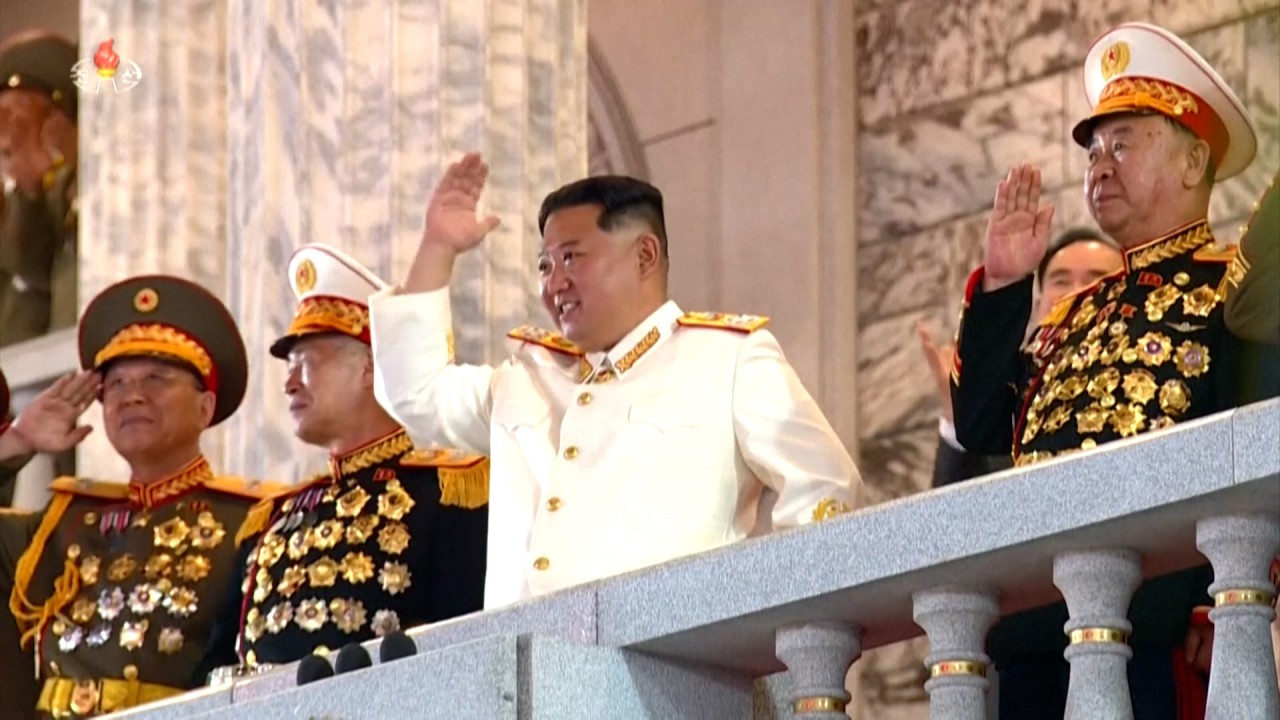
Ukraine war: how far can US, Nato push Putin before he uses nuclear weapons?
- Western leaders must understand the Russian president’s thinking and ensure they don’t give him reason to launch nuclear weapons
- Putin would only really feel threatened if the main forces of the Russian army were wiped out and Ukrainian or Nato troops pushed into Russian territory
Before its “special military operation” against Ukraine, Russia conducted a strategic nuclear exercise. President Vladimir Putin clearly intended this to be a deterrent against direct military intervention by the Nato security alliance.
When two nuclear-armed powers are engaged in a conventional military conflict, the underdog usually threatens to use the nuclear option first to make up for its strategic inadequacies. During the Korean war, for example, Chinese troops pushed back the US-led UN forces early in the conflict, leading US president Harry Truman to raise the prospect of using nuclear weapons to counter China’s push.
Similarly, in May 2002’s military conflict between India and Pakistan, the UN representative of Pakistan solemnly stated that it was difficult to guarantee that nuclear weapons would not be used when it faced serious setbacks in conventional warfare.
North Korea’s Kim Jong-un has also on many occasions shown off his nuclear-capable weapons, with missile launches and military parades, in a warning to the US, Japan and South Korea.
Putin needs to make a judgment call about whether Nato’s assistance to Ukraine counts as participating in the conflict. He must decide against whom he would launch a nuclear strike – it is worth remembering that Putin issued his nuclear threat to the transatlantic alliance rather than Ukraine.
The Russian army is facing setbacks on the battlefield and has launched the second phase of its offensive, so this level of pain seems bearable for now. But if the Ukrainian army were to drive the Russians out of the country, recapturing Luhansk, Donetsk and Crimea, would that be considered too much to bear? Feasibly, it might not amount to a major loss to Putin, given that it was all previously Ukrainian territory.
Nato Secretary General Jens Stoltenberg has drawn a red line for Putin – a Russian attack on a Nato convoy on the Ukrainian supply line would be regarded as an act of war against Nato. So far, Putin has not dared to attack Nato convoys even amid heavy Russian losses.
Putin would only feel real pain if the main forces of the Russian army were wiped out and Ukrainian or Nato troops pushed into Russian territory, marching towards Moscow. At that point, he would certainly believe that he and his country were in danger and would thus seriously consider using nuclear weapons.
The US and Nato leaders must understand what Putin meant when he said, “Why do we need the world if Russia is not in it?”. Could he have actually meant, “Why do we need the world if Putin is not in it?”
If they accept the former interpretation, the US and Nato should look to remove Putin from power. But if he didn’t mean it literally, targeting him could be the reason he needs to launch his nuclear weapons.
Therefore, whether nuclear weapons are used depends on how Putin’s opponents define their victory. In this nuclear age, the answer would seem to be: avoid seeking a complete victory. If Putin’s enemies do win the war, they must not push too far and limit their military advancement, to avoid mutually assured destruction. A good point to stop could well be after Ukraine has regained all its territory.
Ni Lexiong is a professor in the Department of Political Science at Shanghai University of Political Science and Law. This article was translated from Chinese by William Zheng

.jpg?itok=A7RTWwiv&v=1653897730)
